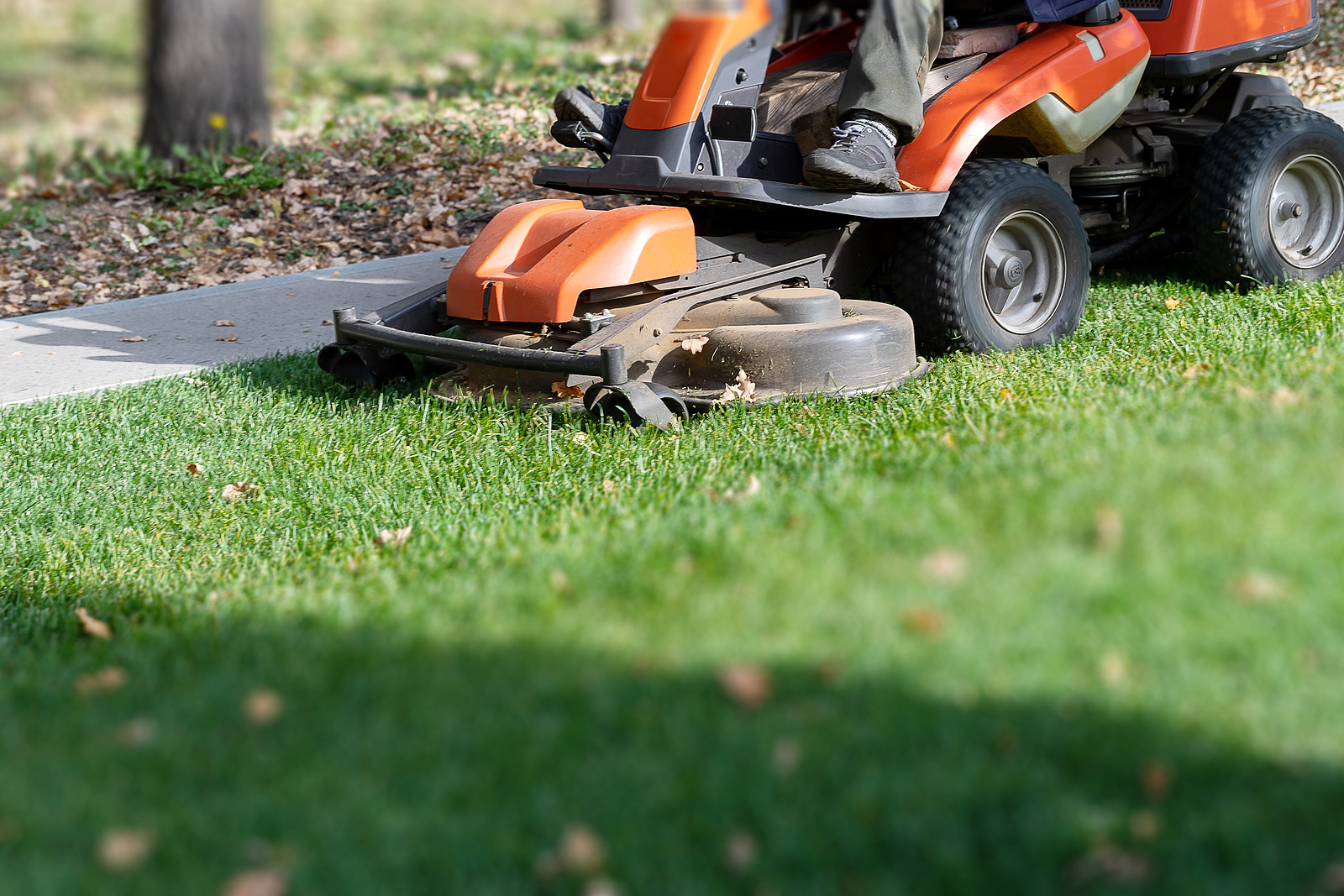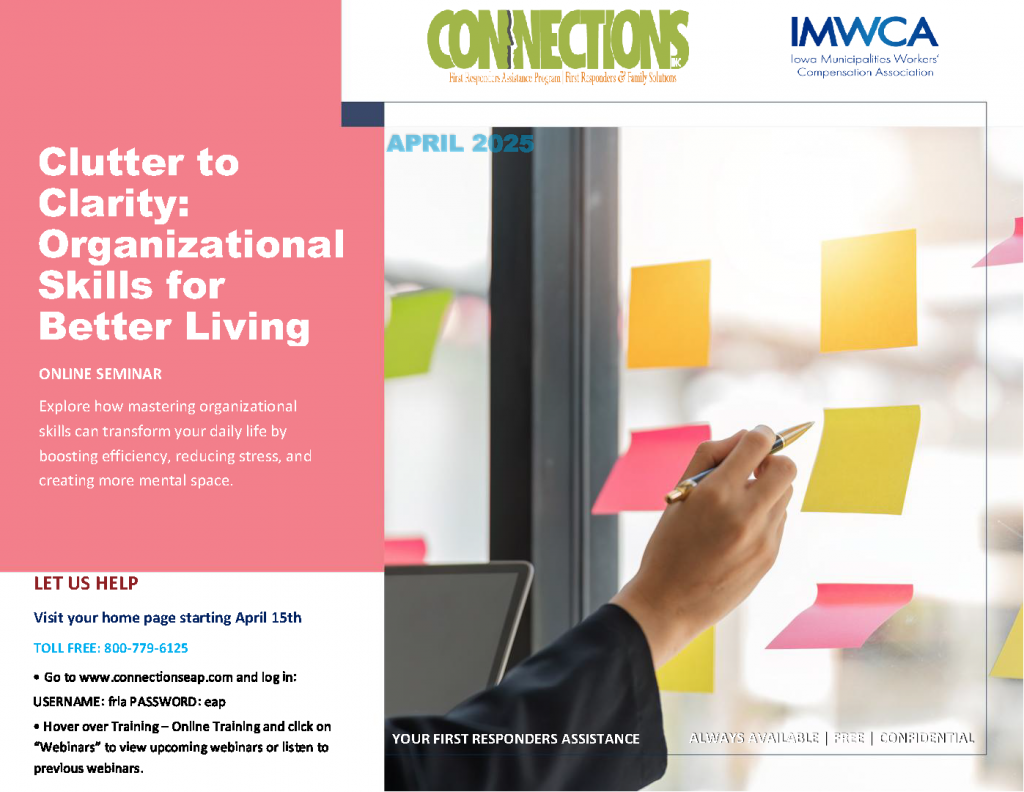
Many workplace injuries are the result of people trying to carry out their work activities too quickly. They want to get to the next item on the “list.” This can lead to not being focused on the job that needs to be completed first. Please “think twice, then act.”
There are two objectives to any task that are co-equal in importance. 1) Complete the task in a competent manner that achieves the desired outcome, and; 2) Complete the task in a safe manner that prevents anyone from being injured. If both of these objectives are not met, the task is a failure.
Here are some tips to assist workers in successfully carrying out tasks:
- Slow Down. Take your time. Know and accept your limitations.
- Size up the task(s) at hand. What needs to be accomplished? Is it an achievable task given the person’s prior training and available resources?
- Do not overestimate your physical capabilities. Do not let your ego lead you into doing something beyond your abilities.
- Do not underestimate the task at hand. Take the time to understand what is required:
- Can this be safely done by one person? If not, ask for help. Can assistive equipment be used to lessen the physical demands?
- Is that equipment available? Make sure it is in place before starting the task. Inspect the equipment before its use to ensure it is in good operable condition.
- Know and follow established standard operating procedures and safety protocols. Do not take shortcuts.
- Can this be safely done by one person? If not, ask for help. Can assistive equipment be used to lessen the physical demands?
Some examples to consider:
Example One: You need to move several heavy boxes of files from an office to a storage room:
Estimate the weight of the boxes. If needed, ask a co-worker to help lift the boxes. Use a dolly or cart to move the boxes. If moving boxes between floors, use an elevator (if available) instead of stairs.
Example Two: A power tool is not functioning properly:
Remove the tool from service. Determine who is trained and qualified to work on the equipment. Only those persons with expertise (on staff or third party) should make an inspection and repair, if possible. If someone is to work on the equipment, make sure it is de-energized first (disconnect electrical power, air supply, battery, etc.)
Example Three: Removing/installing heavy parts on equipment:
Review the required procedures before starting the task. Request help if needed. Make use of assistive devices such as jacks, cribbing, and hoists. Make sure the part cannot fall and cause injury.
Example Four: Exiting Equipment:
When exiting vehicles and equipment, take time to observe where you will be placing your feet. Look for ice, snow, mud, gravel, sand or wet grass.

Strategies for Recruiting Seasonal Employees in Local Government
Recruiting seasonal employees in local government requires creative approaches, especially when competing with the private sector for talent. Here are some non-traditional recruitment strategies that Iowa cities and counties can use:
1. Leverage High School and College Partnerships
- Collaborate with high schools, trade schools, and community colleges to promote seasonal opportunities through career counselors, job boards, and student organizations.
- Offer internship-style seasonal roles that provide students with valuable experience related to their field of study (e.g., environmental science students for parks and recreation roles).
2. Use Social Media & Digital Marketing Creatively
- Run targeted Social Media posts focused on job seekers in your area.
- Utilize current employees as social media ambassadors to share job openings in their networks, especially on Snapchat. Today’s teens use Snapchat as a primary means of communication.
3. Offer Referral Bonuses to Current Employees
- Encourage current employees (both full-time and seasonal) to refer friends or family members.
- Provide small incentives such as food, gift cards, a small amount of paid time off, or cash bonuses for successful hires or retention throughout the season.
4. Tap Into Non-Traditional Workers
- Promote seasonal jobs to retirees who may want part-time work during the summer.
- Partner with local AARP chapters or senior centers to reach retirees seeking flexible, short-term work.
- Engage former employees, such as retired public works staff or teachers on summer break, who may be interested in returning for seasonal roles.
- Partner with local county or state-run correctional facilities to utilize work release programs. Small cities in Iowa have successfully used these programs for public works positions.
5. Flexible Work Schedules & Unique Perks
- Allow customized work schedules to attract students, parents, or those with other part-time jobs.
- Offer discounts on city services (e.g., free pool passes, recreation center memberships) as an employee benefit.
- Allow seasonal employees to gain leadership experience, which can appeal to young job seekers, especially if they can get high school or college credits.
By thinking creatively and embracing non-traditional recruitment methods, Iowa local governments can better attract and retain seasonal employees, ensuring smooth operations and high-quality community services.
LEARN Seasonal Courses
With longer days, more sunshine, and less snow, the seasons are clearly shifting here in Iowa. This change in weather often brings a shift in job responsibilities for outdoor workers, and for many of you, the return or onboarding of seasonal employees.
Have you helped your team adjust their mindset for the work ahead? One of the most important steps in that transition is training.
We’ve highlighted several relevant courses available through our LEARN program to support you and your employees during this seasonal shift.
- PG04 Aquatic Safety
- SJ61 Avoiding Animal Bites
- FG60 or SJ70 Flagger Safety
- LL02 Landscape Safety
- PG01 Playground Safety
- CA34 Playground Supervision
- CA38 The Professional Lifeguard
- SJ49 Wildfire Smoke Safety
- WZ00 Work Zone Safety
- WO16 Working Outdoors in Warm Weather
- CA54 Working Outdoors for Camp Employees
Register Now For IMWCA University
Topic Overview:
Wednesday, April 23
- Indianola Waste Water Treatment Facility Tour
- Introduction to Training Basics for UTV Users
- Stop the Bleed Training
Thursday, April 24
- Opening General Session: Reasonable Compassion
- Breakout Sessions
- The Leadership Mindset: Building Accountable and Collaborative Teams
- Starting and Maintaining a Safety Program
- Round Table Discussion Options
- Underwriting
- Claims Q&A
- Mastering Difficult Conversations: Leadership Strategies for Workplace Challenges
- OSHA Q&A
- Finding/Selecting a Designated Provider
- Closing General Session: Optimizing Injury Reporting & Triage for Better Outcomes
Reminder: Payroll Worksheet Due April 7

Your 2025-2026 payroll worksheet is now available in the IMWCA online portal. Please log in at www.imwca.org to review and update your figures by April 7. If no updates are made, auto-increased amounts will be used for your renewal.
Questions or login issues? Contact Andrew Justice (andrewjustice@iowaleague.org) or Aric Cudnohosky (ariccudnohosky@iowaleague.org).






